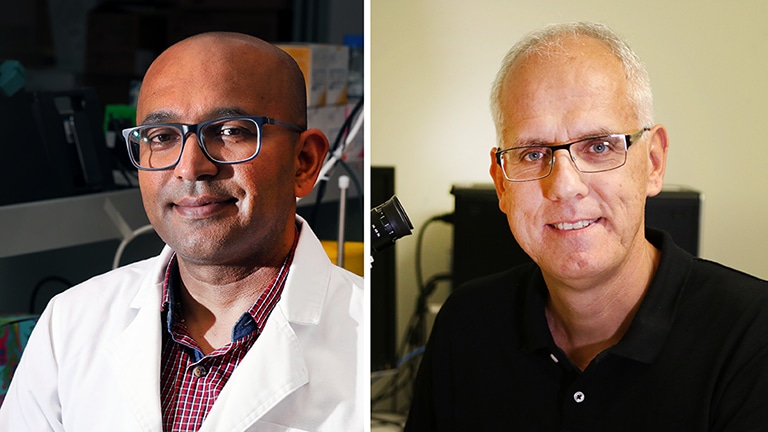
Hunter researchers have been awarded a $600,000 grant to investigate the link between obesity and endometrial cancer.

Hunter researchers have been awarded a $600,000 grant to investigate the link between obesity and endometrial cancer to better identify and treat those at risk.
With around 60 per cent of endometrial cancers directly attributed to obesity, and the rates of obesity continuing to climb globally, endometrial cancer diagnoses are predicted to increase at a rapid rate.
“We’re expecting a 55 per cent increase in endometrial cancer rates by the year 2030,” explained lead researcher, Associate Professor Pradeep Tanwar, pictured left.
“While survival across all cancers has improved dramatically over the years, the relative survival for all gynaecological cancers has only improved by seven per cent.
“On top of that, endometrial cancer research has lagged behind in progress relative to its clinical impact, so there’s a desperate need for more work in the field,” he said.
Funded by Cancer Australia, Associate Professor Tanwar and co-investigator Professor Hubert Hondermarck [pictured right] will lead a team exploring how a key protein might play a role in the development of endometrial cancer in overweight and obese patients.
“Currently, it is unclear how fat enhances the risk of endometrial cancer, however we’ve been able to produce evidence showing that a certain protein plays an important role activating the abnormal growth of cells in the endometrium,” Associate Professor Tanwar said.
The prevalence of obesity in women has more than doubled within the past four decades. As a result, in Australia, endometrial cancer has risen 22 per cent over the last 20 years, with Aboriginal and Torres Strait Islander women almost twice as likely to be diagnosed than non-Indigenous women.
“If we can identify this protein in overweight patients and its role in the development of endometrial cancer, it will provide a sound explanation for the high prevalence of endometrial cancer in obese women and develop a strong rationale for targeting this signalling process.
“We hope our work will contribute toward enhancing identification and preventative treatment for those at risk,” Associate Professor Tanwar said.
The grant is part of Cancer Australia’s Priority-driven Collaborative Cancer Research Scheme to support research that reduces the impact of cancer on the community and improves outcomes for people affected by cancer.
* HMRI is a partnership between the University of Newcastle, Hunter New England Health and the community.
HMRI would like to acknowledge the Traditional Custodians of the land on which we work and live, the Awabakal and Worimi peoples, and pay our respects to Elders past and present. We recognise and respect their cultural heritage and beliefs and their continued connection to their land.
Hunter Medical Research Institute
We’re taking healthy further.
Locked Bag 1000
New Lambton
NSW, Australia, 2305


This site is protected by reCAPTCHA and the Google Privacy Policy and Terms of Service apply.
Copyright © 2024 Hunter Medical Research Institute | ABN: 27 081 436 919
Site by Marlin Communications
